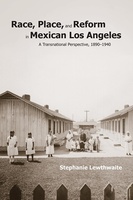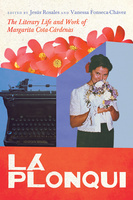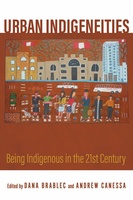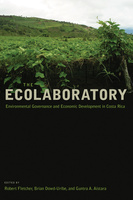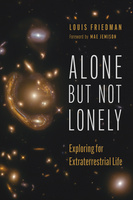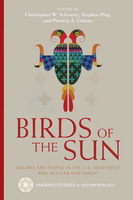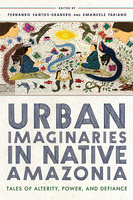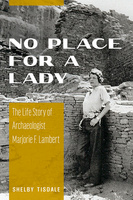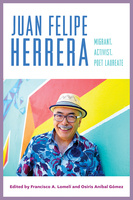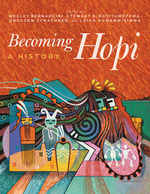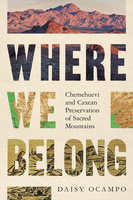The University of Arizona Press is the premier publisher of academic, regional, and literary works in the state of Arizona. They disseminate ideas and knowledge of lasting value that enrich understanding, inspire curiosity, and enlighten readers. They advance the University of Arizona’s mission by connecting scholarship and creative expression to readers worldwide.
Race, Place, and Reform in Mexican Los Angeles
A Transnational Perspective, 1890-1940
Mexico’s Valleys of Cuicatlán and Tehuacán
From Deserts to Clouds
Mexico’s Valleys of Cuicatlán and Tehuacán provides an accessible overview of an extraordinary region of Central Mexico. Through firsthand experience and engaging prose, the authors provide a synthesis of the environment, plants, and peoples of the valleys, showing their importance and influence as Mesoamerican arteries for environmental and cultural interchange through Mexico.
La Plonqui
The Literary Life and Work of Margarita Cota-Cárdenas
This volume’s essays analyze her work’s themes of Chicana identity, the Chicanx movement, and the sociopolitical climate of Arizona and the larger U.S.-Mexico border region, as well as issues of gender, sexuality, and identity related to the Chicanx experience over time.
Urban Indigeneities
Being Indigenous in the Twenty-First Century
Increasing numbers of Indigenous peoples are living in cities, yet the vast majority of studies focus solely on rural Indigenous populations. This is the first book to look at urban Indigenous peoples globally and present the urban Indigenous experience—not as the exception but as the norm. Dismissing the false idea that indigeneity is only “authentic” when it is practiced in remote rural areas, these wide-ranging essays show that a vigorous, vibrant, and meaningful indigeneity can be created in urban spaces too and offers perspectives and tools to understand a contemporary Indigenous urban reality.
The Ecolaboratory
Environmental Governance and Economic Development in Costa Rica
Despite its tiny size and seeming marginality to world affairs, the Central American republic of Costa Rica has long been considered an important site for experimentation in cutting-edge environmental policy. This book frames Costa Rica as an “ecolaboratory” and asks what lessons we can learn for the future of environmental governance and sustainable development both within the country and elsewhere.
Diverting the Gila
The Pima Indians and the Florence-Casa Grande Project, 1916–1928
Diverting the Gila explores the complex web of tension, distrust, and political maneuvering to divide and divert the scarce waters of Arizona’s Gila River among residents of Florence, Casa Grande, and the Pima Indians in the early part of the twentieth century. It is the sequel to David H. DeJong’s 2009 Stealing the Gila, and it continues to tell the story of the forerunner to the San Carlos Irrigation Project and the Gila River Indian Community’s struggle to regain access to their water.
Alone but Not Lonely
Exploring for Extraterrestrial Life
Listening to Laredo
A Border City in a Globalized Age
Bennu 3-D
Anatomy of an Asteroid
Birds of the Sun
Macaws and People in the U.S. Southwest and Mexican Northwest
Urban Imaginaries in Native Amazonia
Tales of Alterity, Power, and Defiance
Featuring analysis from historical, ethnological, and philosophical perspectives, this volume dissects Indigenous Amazonians’ beliefs about urban imaginaries and their ties to power, alterity, domination, and defiance. Contributors analyze how ambiguous urban imaginaries express a singular view of cosmopolitical relations, how they inform and shape forest-city interactions, and the history of how they came into existence, as well as their influence in present-day migration and urbanization.
No Place for a Lady
The Life Story of Archaeologist Marjorie F. Lambert
Marjorie Lambert’s life story is intricately entwined in the development of archaeology in the American Southwest. In Shelby Tisdale’s compelling biography, Lambert’s work as an archaeologist, museologist, and museum curator in Santa Fe comes to life and serves as inspiration for today.
Juan Felipe Herrera
Migrant, Activist, Poet Laureate
Becoming Hopi
A History
Where We Belong
Chemehuevi and Caxcan Preservation of Sacred Mountains
This comparative work dispels the harmful myth that Native people are unfit stewards of their sacred places. This work establishes Indigenous preservation practices as sustaining approaches to the caretaking of the land that embody ecological sustainability, spiritual landscapes, and community well-being.


